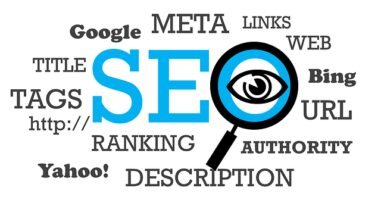In today’s era, where having a presence on social media and effective online marketing strategies are crucial for both businesses and individuals, it is important to have tools that are user-friendly and efficient.
One such tool that plays a key role is a link shortener. Link shorteners help convert lengthy URLs into more convenient links, making it simpler to share them on platforms with character limits or restricted space availability.
Whether you aim to organize your social media links or enhance your marketing efforts, understanding the benefits, drawbacks, and best approaches when utilizing a custom link shortener is essential. This detailed guide will explore the realm of link shorteners to assist you in utilizing them effectively.
Table of Contents
ToggleDefining Link Shorteners
Shortlink providers (commonly referred to as link shorteners) are web services designed to shorten URLs into concise versions that direct users back to the original source.
They accomplish this by assigning a code or alias to the URL and linking it back to its source. It is crucial for any individual or organization that uses link shorteners to maintain trust with their audience.

Benefits of Utilizing Link Shorteners
The following are some of the key benefits offered by link shorteners:
#1. Enhanced Visual Appeal: Lengthy web addresses can appear cumbersome and may deter users from engaging with your content. When you use a link shortener, it helps improve the appearance of your online presence and makes your posts look cleaner without losing any functionality.
#2. Character Limits: Some platforms restrict the number of characters per post. Link shorteners are useful for condensing URLs to concise information, freeing up space for other content.
#3. Tracking and Analytics: Many link shortener services offer analytics tools to track click-through rates (CTR), audience demographics, engagement metrics, and more. This data helps you determine the best strategies for enhancing your online presence.
#4. Improved User Experience: Shortened links can lead to a better user experience by making links more manageable and less intimidating, especially for those not tech-savvy. Users are more likely to click on shorter, neater URLs as they appear less risky and easier to remember.
#5.Branding Opportunities: Some link shorteners allow you to customize the shortened URL to include your brand name or relevant keywords. This enhances brand visibility and can make your links more recognizable across various platforms.
#6. Increased Sharing Potential: Due to their compact size, shortened links are easier to share, especially in environments with character limitations like SMS. They can also be more aesthetically pleasing when shared in emails, on business cards, or in printed materials.

Drawbacks of Using Link Shorteners
There are a few disadvantages of using link shorteners that must also be considered:
#1. Reduced Transparency: While shortened URLs may appear organized at first glance, they can raise suspicion among users. People are wary of clicking on disguised links due to security risks like scams or malware. It’s important to address these concerns by stating where the link leads to build trust with your audience.
#2. Dependence on Third-Party Services: Relying on a link shortener service means being reliant on its availability and reliability. If the service goes down or shuts down, your shortened links could become unusable or inaccessible.
#3. Risk of Link Rot: Over time, shortened URLs may suffer from “link rot” if the shortening service discontinues or purges its database. This results in dead links, hindering access to previously shared content.
#4. SEO Implications: Using link shorteners can obscure the destination URL, which may impact search engine optimization (SEO). Direct links are generally preferred for SEO as they ensure the link value (link juice) is passed directly to your website. Shortened links, particularly through third-party services, may not always carry the same weight.
#5. Branding Disconnection: Although custom short URLs can enhance branding, generic shortened links do not. They miss the opportunity to reinforce brand recognition and can appear disconnected from your brand identity.
Effective Strategies for Utilizing Link Shorteners
In order to make the most of link shorteners, it’s important to consider the following:
#1. Know Your Audience: Conduct research to understand how comfortable your target audience is with using link shorteners. Tailoring your approach based on their preferences can enhance user engagement and boost click-through rates.
#2. Be Transparent: Address any concerns your audience may have by stating that a shortened URL directs to the content source. Communicate the destination concisely while maintaining clarity in your explanations.
#3. Test Before Sharing: Prior to sharing a URL, test it across various browsing platforms and devices to ensure proper redirection. This helps prevent issues that could occur with different browsers or mobile devices.
#4. Maintain Backup Links: Always keep a record of both the original long URLs and their shortened versions. This ensures preparedness in case you need to recreate them in situations where the link-shortening service becomes unavailable or problems are encountered.
Link Shorteners in Marketing Strategies
When you’re running marketing campaigns, using link shorteners can really tidy things up. They help keep your messages neat and make digging into the campaign’s success a whole lot easier. With UTM parameters in their toolkit, marketers can effortlessly track where their traffic is coming from—be it a specific ad or social media platform.
This gives them a clearer picture of which campaigns are hitting the mark and which ones need a bit more polish. Moreover, marketers have the option to utilize custom link-shortening services that integrate their brand name into shortened URLs instead of depending on shortening domains.
Adopting this strategy does more than just make your brand easier to recognize; it also builds trust with users who find it simple to connect the dots back to your company through the URL.
Link shorteners have become a game-changer, especially when you’re trying to fit everything into those pesky character limits, boost your online visibility, and keep an eye on how well your campaigns are doing. But hey, let’s not forget the importance of using them just right to keep your audience hooked and in the loop.
It’s all about building that trust without tossing security out the window. Once you get the hang of using link shorteners, figuring out their benefits and pitfalls, along with some smart strategies, can really take your user experience up a notch for both individuals and businesses.







